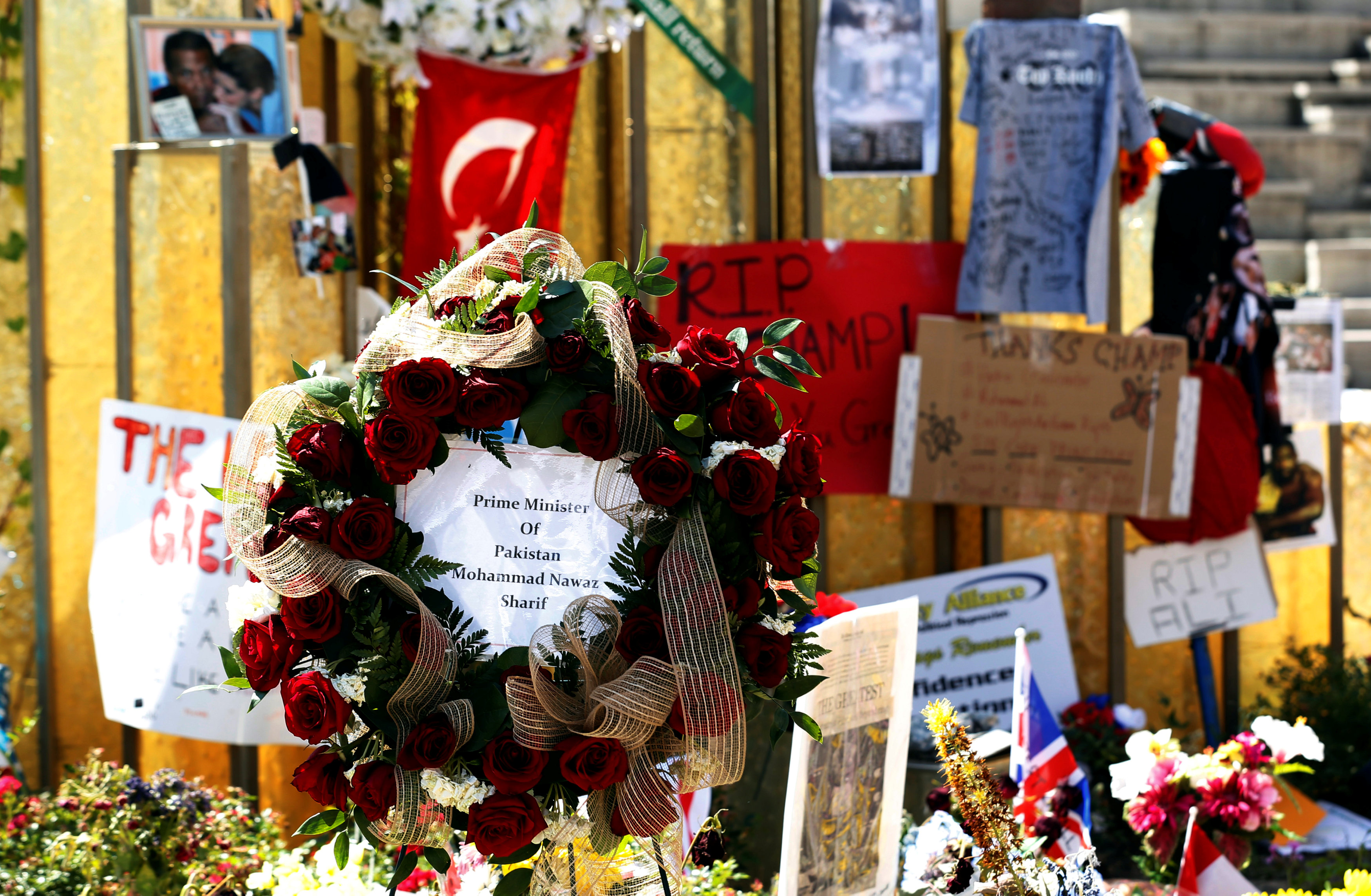
In Pakistan, like elsewhere on the globe, Muhammad Ali’s passing left fans grieving. But it also rekindled memories that are unique for an outstanding reason: he remains probably the most famous convert to the Muslim faith in modern history, and so was indulgently followed beyond the sport, which really has no base in Pakistan.
Ali was cherished for taking a high moral ground in refusing the Vietnam draft and going to the extent of giving up his World Heavyweight Champion title for his beliefs.
Zulfikar Ali Bhutto, Pakistan’s first popularly elected prime minister, even offered him to come live in the South Asian country when he was being ostracised in the US for refusing military service. Eventually, Ali visited Pakistan in 1988 and was predictably, jubilantly mobbed.
But here, one would like to make an own recollection with a stab at what the most famous athlete meant to the world.
Watching I Am Ali — the 2014 documentary that provides rare access to audio journals that he had painstakingly maintained over decades — was insightful.
Many Pakistanis of my generation have blurred images imprinted on the mind of the patchy black-and-white live feed on the state broadcaster (Pakistan Television), bringing the glory of Ali at often ungodly hours. Even though he always seemed and remains larger than life, one didn’t always reconcile with his bombast about being ‘The Greatest’ but paradoxically, that’s the legacy of his sporting sweep leftbehind. In later years however, he debunked the ‘myth’ of any human being the ‘Greatest’,saying it was the sole reserve of God.
For me, what first made him a hero was learning through a chapter in the English curriculum at school about his throwing away the coveted Olympic medal in the Ohio River. Ali (then Cassius Clay) was only 18 and wore the distinction with pride all the time! He felt deeply hurt and outraged after being refused service at a small dinner party in the US just because of his race.
Ali’s iconic life from thereon — particularly, the refusal to serve the Vietnam draft on a principle so profound it touches the heart — will remain etched in memory.
“Why should they ask me to put on a uniform and go 10,000 miles from home and drop bombs and bullets on brown people in Vietnam while so-called Negro people in Louisville are treated like dogs and denied simple human rights?,” retorted Ali.
Talking of The Champ, there’s one amazing dichotomy governing his legacy. We’ve always been taught that the sport is bigger than the player. That no player, however great, can rise above the game itself. Ali perhaps, was an exception. One cannot recall a single other instance where such a large assembly of connoisseurs agrees that his aura then, and legacy now, transcends the sport itself! Likely, it has to do with his powerful persona and prowess outside the ring more than inside it.
Considering that boxing was his bread and butter, he took a massive risk in taking the fight away from the ring for people of his race, who desperately needed a voice.
Finally, a confession: a paradox as it might seem, I’ve always had a bone to pick with boxing and never considered it much of a sport. It is difficult to accept that something, by design or default, may bring down a competitor with sometimes fatal consequences. Physical hammering any which way is not equal to sport in my book. History is littered with boxers dying of body blows when not eking out a restricted existence thanks to brain injuries.
But still, one related to and loved Ali like no-one’s business; caught on to his peppy ode Float Like a Butterfly/Sting Like a Bee as a child; and was awed by his self-belief with humanity at its base and spiritual configuration of life in later years.
In his prime, he had the gift of gab, the sense of occasion and unbridled chutzpah that fitted well with his handsome self. Ali’s demise will remain one of the saddest days for his legion of admirers. But of course, it’s not for his prowess in the ring that he always endeared himself to us, although to start and end with, that’s why we’re even talking about him here!
In the end, the 32-year fight with Parkinson’s could not make light of his heavyweight legacy. But it’s a relief that he’s past it — as his daughter former world champ daughter Laila admitted last week. In life, he was sometimes knocked down, but not knocked out — the spirit never wavered whoever he faced: be it opponents in the ring or opponents out of the ring, discriminatory judges or debilitating disease.
May The Champ find peace that he always deserved!
• The writer is a senior journalist based in Islamabad.